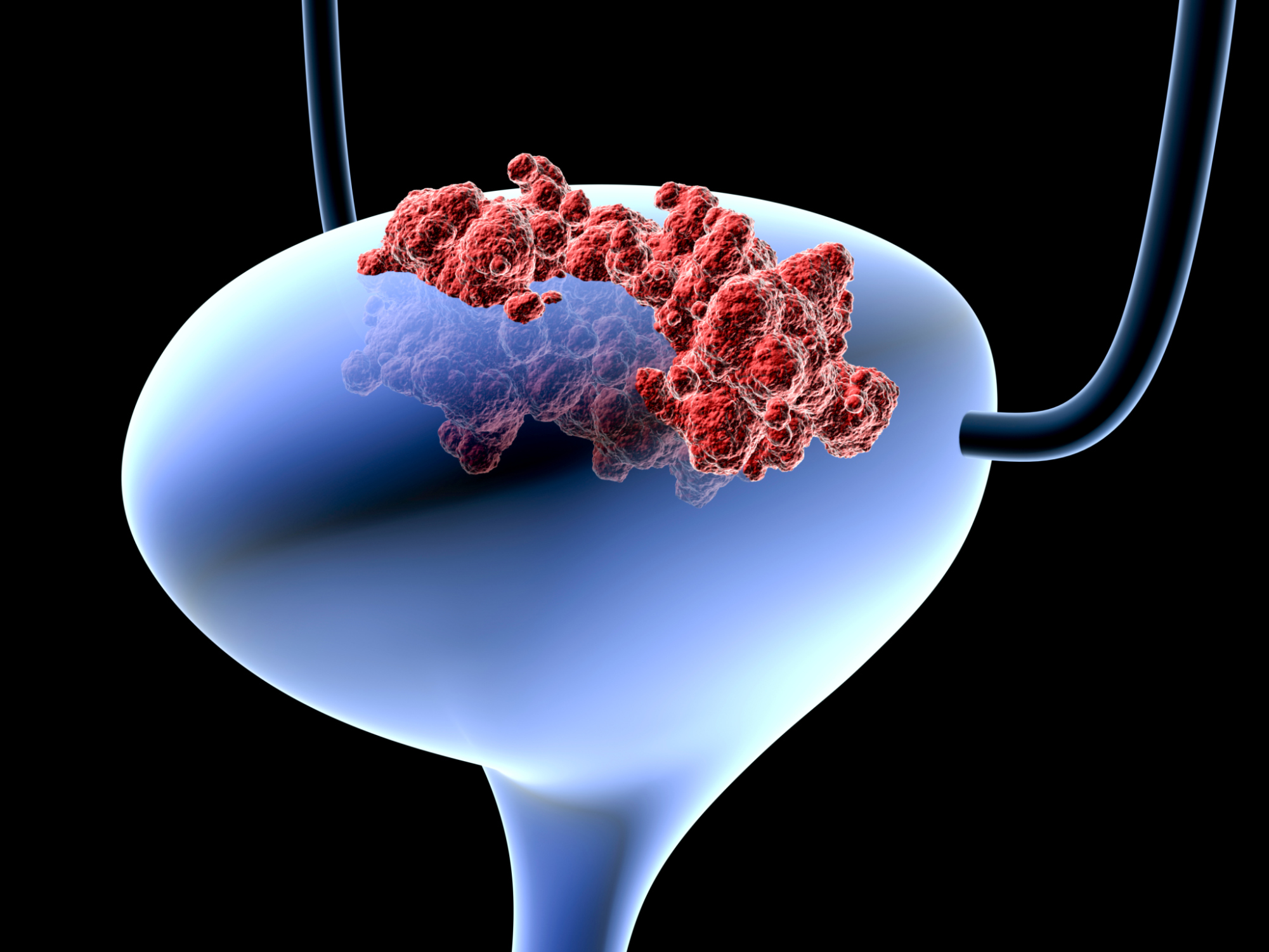Bladder cancer is more common in men than women, though it is possible in both. Its most common symptom is the occurrence of blood in the urine. This is one of the reasons why urine tests are regularly performed by primary care doctors during yearly physical exams.
The most common treatment for bladder cancer is a minimally invasive procedure called trans-urethral resection of bladder tumor (TURBT).
TURBT shaves the tumor from the bladder wall and allows doctors to analyze its type and depth. These results sometimes require further treatment, including chemotherapy.

